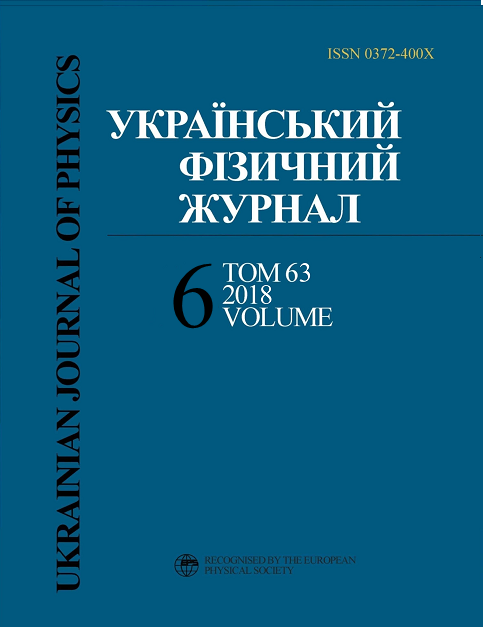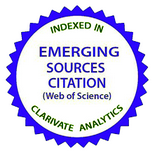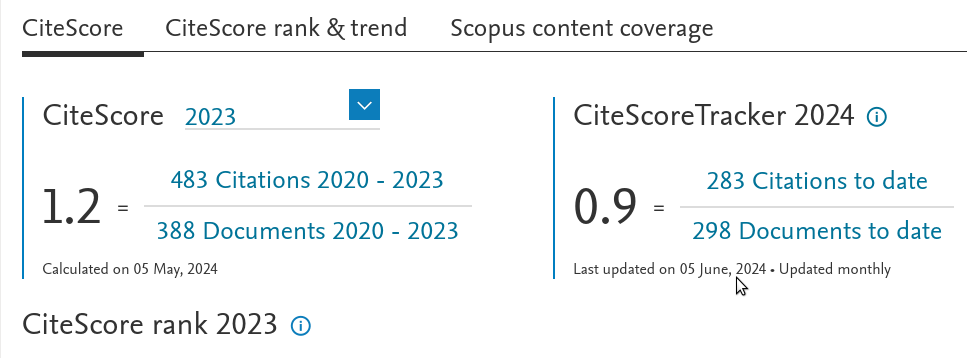Узагальнені еквідистантні поліноми Чебишова і вузлові інваріанти Александера
DOI:
https://doi.org/10.15407/ujpe63.6.488Анотація
Вводяться узагальненi еквiдистантнi полiноми Чебишова T(k,h) роду k iз гiперроду h, де k, h – додатнi цiлi числа. Вони отриманi шляхом узагальнення стандартних полiномiв Чебишова першого i другого родiв та монiчних полiномiв Чебишова першого i другого родiв. Це узагальнення виконується в двох напрямках. Горизонтальне узагальнення здiйснюється шляхом введення поняття гiперроду ℎ, i розширення множини його значень до нескiнченностi. Вертикальне узагальнення передбачає розширення множини значень роду k до нескiнченностi методом еквiдистантних коефiцiєнтiв. Дослiджено деякi зв’язки введених полiномiв з вузловими iнварiантами Александера.
Посилання
<li>M.F. Atiyah. The Geometry and Physics of Knots (Cambridge Univ. Press, 1990).
<a href="https://doi.org/10.1017/CBO9780511623868">https://doi.org/10.1017/CBO9780511623868</a>
</li>
<li>L.H. Kauffman. Knots and Physics (World Scientific, 2001).
<a href="https://doi.org/10.1142/4256">https://doi.org/10.1142/4256</a>
</li>
<li>L.H. Kauffman (editor). The Interface of Knots and Physics. AMS Short Course Lecture Notes, a subseries of Proc. Symp. App. Math. 51 (AMS, 1996).
<a href="https://doi.org/10.1090/psapm/051">https://doi.org/10.1090/psapm/051</a>
</li>
<li>E. Radu, M.S. Volkov. Stationary ring solitons in field theory – knots and vortons. Phys. Rep. 468 (4), 101 (2008).
<a href="https://doi.org/10.1016/j.physrep.2008.07.002">https://doi.org/10.1016/j.physrep.2008.07.002</a>
</li>
<li>J.H. Conway. An enumeration of knots and links. In: Computational Problems in Abstract Algebra (Pergamon, 1970).
</li>
<li>J.W. Alexander. Topological invariants of knots and links. Trans. Amer. Math. Soc. 30, 275 (1928).
<a href="https://doi.org/10.1090/S0002-9947-1928-1501429-1">https://doi.org/10.1090/S0002-9947-1928-1501429-1</a>
</li>
<li>V.F.R. Jones. A polynomial invariant for knots and links via von Neumann algebras Bull. AMS 12, 103 (1985).
</li>
<li>P. Freyd, D. Yetter, J. Hoste, W.B.R. Lickorish, K. Millet, A. Ocneanu. A new polynomial invariant of knots and links. Bull. AMS 12, 239 (1985).
<a href="https://doi.org/10.1090/S0273-0979-1985-15361-3">https://doi.org/10.1090/S0273-0979-1985-15361-3</a>
</li>
<li>T.J. Rivlin. Chebyshev Polynomials: From Approximation Theory to Algebra and Number Theory (Wiley, 1990).
</li>
<li> A.M. Gavrilik, A.M. Pavlyuk. On Chebyshev polynomials and torus knots. Ukr. J. Phys. 55, 129 (2010).
</li>
<li> A.M. Gavrilik, A.M. Pavlyuk. Alexander polynomial invariants of torus knots T(n,3) and Chebyshev polynomials. Ukr. J. Phys. 56, 680 (2011).
</li>
<li> A.M. Pavlyuk. On T(n, 4) torus knots and Chebyshev polynomials. Ukr. J. Phys. 57, 439 (2012).
</li>
<li> A.M. Pavlyuk. Polynomial invariants of torus knots and (p, q)-calculus. Algebras, Groups and Geometries 31, 175 (2014).
</li>
<li> D. Rolfsen. Knots and Links (Publish or Perish, 1976).
</li>
<li> W.B.R. Lickorish. An Introduction to Knot Theory (Springer, 1997).
<a href="https://doi.org/10.1007/978-1-4612-0691-0">https://doi.org/10.1007/978-1-4612-0691-0</a></li>
##submission.downloads##
Опубліковано
Як цитувати
Номер
Розділ
Ліцензія
Ліцензійний Договір
на використання Твору
м. Київ, Україна
Відповідальний автор та співавтори (надалі іменовані як Автор(и)) статті, яку він (вони) подають до Українського фізичного журналу, (надалі іменована як Твір) з одного боку та Інститут теоретичної фізики імені М.М. Боголюбова НАН України в особі директора (надалі – Видавець) з іншого боку уклали даний Договір про таке:
1. Предмет договору.
Автор(и) надає(ють) Видавцю безоплатно невиключні права на використання Твору (наукового, технічного або іншого характеру) на умовах, визначених цим Договором.
2. Способи використання Твору.
2.1. Автор(и) надає(ють) Видавцю право на використання Твору таким чином:
2.1.1. Використовувати Твір шляхом його видання в Українському фізичному журналі (далі – Видання) мовою оригіналу та в перекладі на англійську (погоджений Автором(ами) і Видавцем примірник Твору, прийнятого до друку, є невід’ємною частиною Ліцензійного договору).
2.1.2. Переробляти, адаптувати або іншим чином змінювати Твір за погодженням з Автором(ами).
2.1.3. Перекладати Твір у випадку, коли Твір викладений іншою мовою, ніж мова, якою передбачена публікація у Виданні.
2.2. Якщо Автор(и) виявить(лять) бажання використовувати Твір в інший спосіб, як то публікувати перекладену версію Твору (окрім випадку, зазначеного в п. 2.1.3 цього Договору); розміщувати повністю або частково в мережі Інтернет; публікувати Твір в інших, у тому числі іноземних, виданнях; включати Твір як складову частину інших збірників, антологій, енциклопедій тощо, то Автор(и) мають отримати на це письмовий дозвіл від Видавця.
3. Територія використання.
Автор(и) надає(ють) Видавцю право на використання Твору способами, зазначеними у п.п. 2.1.1–2.1.3 цього Договору, на території України, а також право на розповсюдження Твору як невід’ємної складової частини Видання на території України та інших країн шляхом передплати, продажу та безоплатної передачі третій стороні.
4. Строк, на який надаються права.
4.1. Договір є чинним з дати підписання та діє протягом усього часу функціонування Видання.
5. Застереження.
5.1. Автор(и) заявляє(ють), що:
– він/вона є автором (співавтором) Твору;
– авторські права на даний Твір не передані іншій стороні;
– даний Твір не був раніше опублікований і не буде опублікований у будь-якому іншому виданні до публікації його Видавцем (див. також п. 2.2);
– Автор(и) не порушив(ли) права інтелектуальної власності інших осіб. Якщо у Творі наведені матеріали інших осіб за виключенням випадків цитування в обсязі, виправданому науковим, інформаційним або критичним характером Твору, використання таких матеріалів здійснене Автором(ами) з дотриманням норм міжнародного законодавства і законодавства України.
6. Реквізити і підписи сторін.
Видавець: Інститут теоретичної фізики імені М.М. Боголюбова НАН України.
Адреса: м. Київ, вул. Метрологічна 14-б.
Автор: Електронний підпис від імені та за погодження всіх співавторів.













